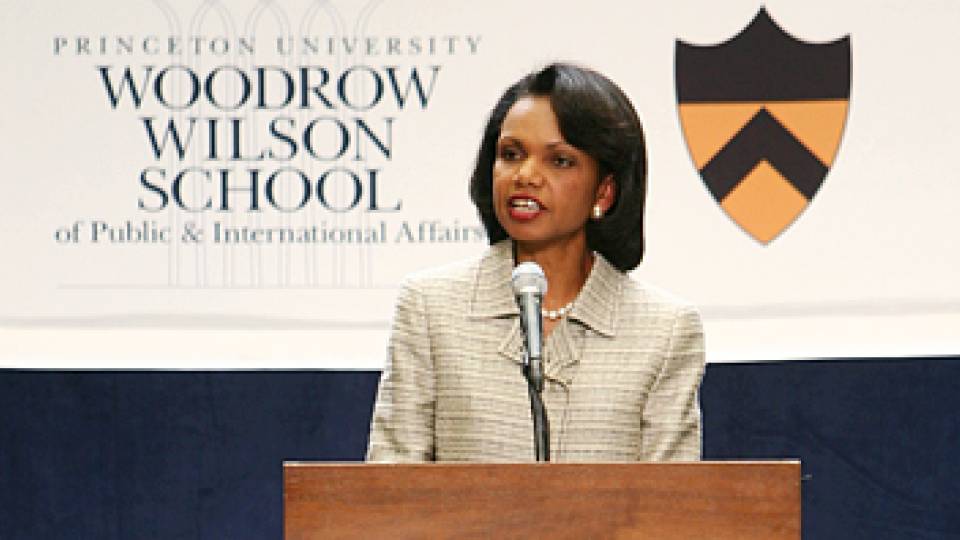U.S. Sen. Joseph Biden, the ranking Democrat on the Foreign Relations Committee, criticized the Bush administration's push for war in Iraq and offered a blueprint for a new American foreign policy in an address Monday, Feb. 23, at Princeton University.
Biden, a senator from Delaware since 1972, chastised President Bush for failing to unite Americans and strengthen ties with other nations following the Sept. 11, 2001, terrorist attacks.
"I think history is going to judge this administration somewhat harshly, not for the mistakes they have made but for the opportunities they have squandered," he said.
Biden noted that Saddam Hussein was a brutal dictator who posed a long-term threat to the United States and other nations. But the evidence used to thrust the United States into war in Iraq last year was "overhyped" and the rush to war caused massive damage to America's reputation abroad, he said.
Biden stressed that U.S. foreign policy needs to reflect an "enlightened nationalism." He called for the strengthening of international organizations and agreements, such as intelligence cooperation, as well as an assurance that multinational pacts would be enforced. "We have to come up with a new standard for intervention that is permissible, that reflects the world we have now, not the bipolar world that existed until 1989," he said.
Biden added that the United States and its allies must be prepared to use force, but only as a last resort for preventive purposes. In addition, he cited the need for "a sustained commitment to the expansion of liberal democracy -- not by imposing it from the outside, but by building it from within."
"We also need a new attitude, an attitude that suggests that projecting power should not occur in an elective war absent a commitment to staying power. Don't project the power unless you're prepared to have staying power," Biden said. "Nation-building -- that 'four-letter word' in this administration up to now -- is an absolute prerequisite for the 21st century."
Biden's lecture was sponsored by the Woodrow Wilson School of Public and International Affairs .
Contact: Lauren Robinson-Brown (609) 258-3601

